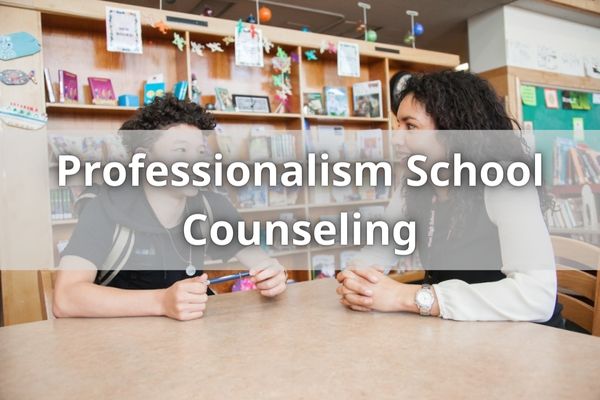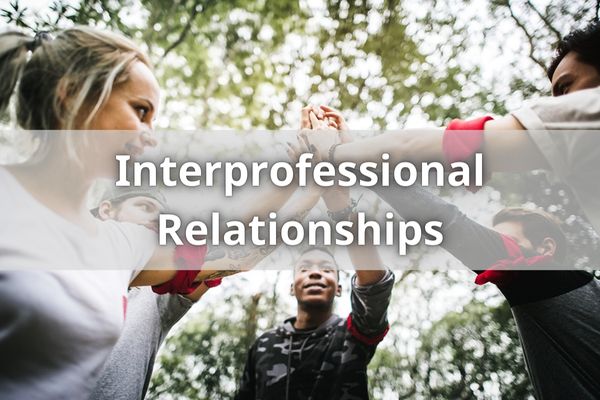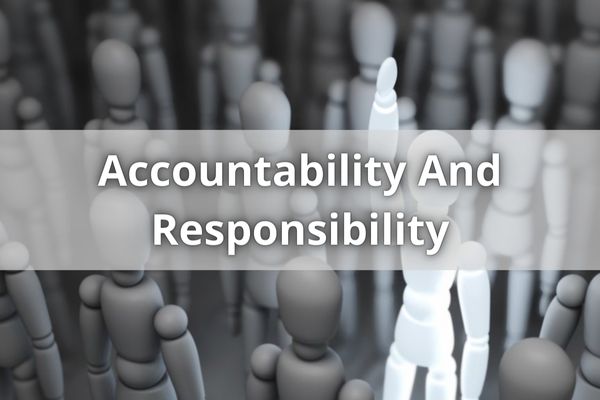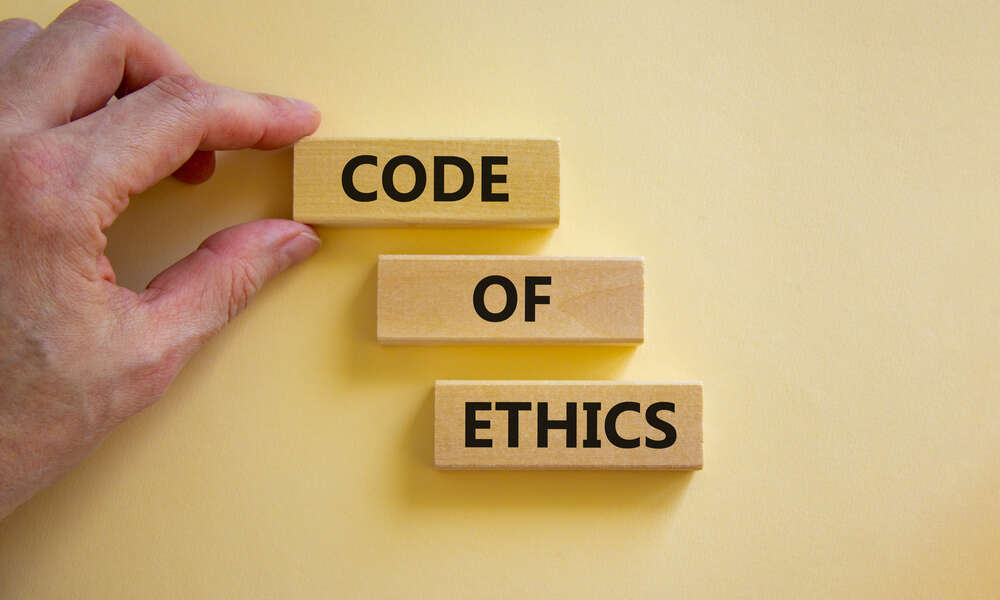School Counselor Code Of Ethics: Ethical Standards For School Counselors
School Counselor Code Of Ethics. As a school counselor, I’m acutely aware of the importance of upholding professional standards. That’s why I take my ethical responsibilities seriously and strive to follow the code set by my profession. It’s essential that we keep our students’ best interests at heart, and there are certain expectations for counselors that must be met in order to ensure this happens.
In this article, I’ll be discussing what these expectations entail and exploring how they shape our work as school counselors.
Professionalism School Counseling

As a school counselor, I take professionalism seriously. It is my responsibility to uphold the highest ethical standards and maintain an equitable practice when providing guidance and support to students, families, and colleagues.
To ensure that this occurs, I have obtained a Master’s degree in counseling and adhere strictly to the Code of Ethics set forth by the American Counseling Association.
One of my primary goals as a professional is to provide honest yet sensitive services while respecting individual values and beliefs. This involves engaging in self-reflection on any personal biases or prejudices I may hold so they do not interfere with client needs. Additionally, I strive to continually increase my knowledge base through research and continuing education opportunities related to best practices for counseling.
I am aware of the trust placed within me when working with clients; therefore it is important for me to remain accountable for upholding ethical guidelines at all times. My commitment is reflected in each interaction I have with those who seek out my assistance.
With that being said, I recognize confidentiality as another core component of our relationship which must be maintained at all costs.
Confidentiality
I take confidentiality seriously as a school counselor and adhere to the ethical standards for school counselors outlined by ASCA.
I understand that, in order to foster trust between myself and my students, limits of confidentiality must be respected; this includes protecting student information from unauthorized disclosure or use. Additionally, I will not release any confidential information unless it is done so lawfully and with permission from relevant parties.
When discussing sensitive topics within an educational setting, I believe that all involved should feel comfortable talking without fear of judgment or stigma. As part of my commitment to upholding the school counselor code of ethics, I strive to keep conversations private and respect individual rights to privacy at all times.
This also extends beyond traditional counseling sessions into other forms of communication—such as emails, text messages, phone calls—which are subject to the same expectations of confidentiality.
These measures ensure that both myself and my students can safely explore important issues while maintaining a sense of understanding and security. In doing so, we can create an open dialogue based on mutual trust which allows us to work together towards meaningful change.
This approach sets clear boundaries which allows us to move forward with our mission: To cultivate an environment where everyone feels heard, valued, and accepted regardless of their differences.
Respect For Diversity
As a school counselor, I take my responsibility to respect diversity seriously. It is an important part of the ethical code that guides my practice in accordance with the American School Counselor Association (ASCA) and other professional standards.
I also recognize that cultural competence requires ongoing self-reflection on my own behaviors and attitudes in this regard. My commitment to respecting diversity in all forms drives me to continuously deepen my understanding so that I may better serve those who trust me with their well-being.
It is imperative for me to create inclusive environments where everyone feels respected regardless of race, color, religion or creed, gender identity or expression, sexual orientation and ability status — among other aspects of human difference — while recognizing unique individual characteristics.
With these principles at the forefront of my work every day, I am humbled by the opportunity to make meaningful contributions towards creating more just systems for us all. As such, it comes with great privilege when I’m called upon to help bridge divisions between different communities in service of social justice initiatives. Moving forward into the next section…
Professional Competence
I, as a school counselor, must uphold the ethical behavior of my profession. It is my responsibility to guide students in their learning journey and support them in their development. To ensure I am meeting this obligation, it is essential that I stay informed on all current statutes, regulations and guidelines related to our field. This includes staying up-to-date with the American School Counselor Association’s (ASCA) Code of Ethics which outlines specific professional responsibilities for counselors across the country.
Additionally, school counselors must remain aware of any changes or updates to laws and policies concerning educational programs in order to provide accurate guidance. By following these rules, we can build trust between ourselves and our students so they feel comfortable discussing their challenges and successes with us.
Furthermore, sticking to these standards will help foster an environment where counseling services are seen as beneficial tools rather than punitive measures by both parents and administrators alike.
It is also important that I reflect regularly on what kind of example I set for my colleagues and those around me when providing counseling sessions. As such, self-awareness becomes a key factor for maintaining effective communication within the student/counselor relationship. In turn, this allows us to better serve our clients and create meaningful connections with each individual case.
Taking ownership over such matters helps keep everyone involved accountable and provides an extra layer of security when implementing decisions about sensitive issues impacting our community members’ lives.
Self-Awareness

Professional competence is key for school counselors to ensure they are providing ethical support and guidance to students. It is important to consider the ASCA Ethical Code of Conduct when making decisions that affect student’s well-being, academic success, and career development.
Moving forward, self-awareness is essential in a successful counseling relationship. School counselors must be aware of their own limitations and have insight into how personal values may impact ethical decision-making.
Here are some ways school counselors can increase their self-awareness:
- Participate in professional development opportunities such as continuing education workshops or conferences
- Engage in reflective practice on their current caseloads
- Seek out supervision or mentorship from experienced professionals
- Regularly assess and update knowledge base related to best practices
Being mindful of these actions will help school counselors develop an understanding of themselves so they can better serve the needs of their students while abiding by the standards set forth by the ASCA Ethical Code of Conduct.
It is also important for school counselors to understand advocacy – not only advocating for individual students but also being an advocate at the systems level. This involves recognizing social justice issues that intersect with personal beliefs and considering new perspectives.
Advocacy
As a school counselor, I am dedicated to advocating for the welfare of all stakeholders within my educational setting. This includes students and their families, educators, administrators, and community members. It is imperative that I demonstrate leadership in protecting student rights and ensuring equitable access to quality education services. My commitment to advocacy must be grounded in the ethical principles set forth by counseling associations such as the American School Counselor Association (ASCA).
As an advocate, it is essential that I use my position to identify inequities while also promoting social justice initiatives. In practice this means:
- collaborating with colleagues across disciplines;
- intervening when necessary;
- supporting programs and policies aimed at improving academic outcomes;
- serving as mediator between conflicting parties;
- conducting research on issues relevant to school counseling;
- speaking out against injustice or unethical practices; and
- educating others on best practices related to school counseling.
My role as an advocate goes beyond simply raising awareness about issues impacting our schools – I have a responsibility to take actionable steps towards creating meaningful change. As part of this effort, I must stay informed about current trends and developments in order to ensure effective stewardship of resources through responsible decision-making processes. To do so requires active collaboration with other professionals who are invested in making positive contributions towards enhancing learning experiences for all individuals involved in the educational process.
With these efforts combined, we can create long-lasting systemic improvements designed to benefit everyone connected with our schools. Armed with knowledge gained from continued professional development opportunities, I am well equipped to advance strategies capable of strengthening our collective capacity for achieving greater success.
With this understanding of advocacy firmly established, let us now turn our attention to another important aspect of being a school counselor: responsible use of technology.
Responsible Use Of Technology
Having advocated for the students, I must consider how to use technology responsibly. To do this, I need to stay informed on new developments in professional development and decision-making regarding technology usage with clients. This includes being able to explain the implications of using technology when working with my clientele and obtaining their consent before proceeding. Technology can be a powerful tool that helps me grow as a leader; however, it is important for me to realize its limitations and not get too caught up in relying solely on such resources.
I must also remain conscious of the laws governing information access rights, including those pertaining to minors or vulnerable populations. It’s essential that I understand all aspects of responsible use of technology (including but not limited to electronic records management) and put these into practice during my counseling sessions so I don’t break any regulations set by my state’s educational board or any other relevant institutions.
Furthermore, I should ensure that all school personnel have adequate training in regards to the security protocols needed for handling confidential data stored electronically via school networks or cloud services. In addition, I am ethically obligated to adhere to guidelines concerning appropriate boundaries between myself and current/former clients who may contact me through digital means outside of our traditional therapeutic relationship.
By operating within ethical parameters related to technological advances, counselors can maintain protection from harm while also providing quality care for their clients. Ultimately, it is imperative that we engage in practices which prioritize safety over convenience when dealing with sensitive materials online. With this in mind, let us now move onto discussing responsible use of resources.
Responsible Use Of Resources
I’m sure many of us can agree that there are a set of responsibilities when it comes to the use of resources, whether they be personal or professional.
The American School Counselor Association (ASCA) Ethical Standards for School Counseling Programs and School Counselor Educators provide guidance on responsible resource use – both in terms of membership as well as general guidelines. This section provides an overview of these important standards.
The ASCA Code outlines its expectations for members: “School counselors shall serve students responsibly with the highest possible level of competence by using appropriate materials and technology, avoiding bias, and advocating for equity”. It also emphasizes collaboration between school counseling professionals so everyone is aware of each other’s work and efforts related to programs and services provided to their respective schools.
It’s clear that these ethical standards promote responsible use of resources within our profession while encouraging interprofessional relationships amongst colleagues. By adhering to this code, we help ensure all members have access to helpful information, support one another in carrying out our duties, and create a safe learning environment for all involved.
With these goals in mind, let’s explore what it means to foster meaningful connections with those around us…
Interprofessional Relationships

As a school counselor, it is essential to cultivate and maintain healthy interprofessional relationships. It is crucial for counselors to respect their peers’ opinions and beliefs about counseling practices.
When engaging in any dual relationship, such as when providing services or advice to someone who has been referred by another professional, it is important the counselor respects the original referring source’s wishes. Furthermore, if a minor client requests services from an adult peer of theirs without parental consent, then I must refer them back to their parent or legal guardian for further guidance.
When engaging with other professionals as part of my job duties, I am ethically obligated not to take advantage of those interactions through improper use of power or authority. This includes avoiding situations that could be interpreted as exploiting the trust extended by clients and colleagues. Additionally, when working under supervision during clinical field experiences or internships, I should demonstrate professionalism while adhering to ethical guidelines established by the supervisor.
Being open-minded towards others’ perspectives is just one component of successful interprofessional relationships; respecting boundaries and recognizing limitations are also key parts of this equation. Essential components like these enable me to establish networks which can result in mutual understanding and collaboration between myself and other professionals.
As I move forward in developing these types of connections throughout my career as a school counselor, I will strive to do so with integrity and honorability. With mindful consideration for all involved parties, I am better able to make sound ethical decisions moving forward on behalf of my clients.
Ethical Decision-Making
School counselors must always adhere to principles of ethical behavior necessary in order to maintain the profession’s integrity. These best ethical practices serve as a guide for school counselors when making decisions and taking action related to their roles and responsibilities.
To ensure that ethical behavior is upheld, school counselors should:
Follow laws and regulations established by federal, state, and local authorities
- Strive to remain aware of legal statutes and court decisions relevant to the counseling profession
- Abide by rules set forth by professional organizations such as the American School Counselor Association (ASCA)
Respect client rights while providing services
- Maintain confidentiality according to accepted standards of practice
- Refrain from any form of discrimination or prejudice based on factors including gender identity, race, religion, national origin, age, sexual orientation or disability status
Examine personal beliefs and values when engaging with clients
- Remain cognizant of potential biases or prejudices which may influence interactions with students/clients
- Demonstrate an understanding that cultural backgrounds will shape attitudes towards various topics
By upholding these core ethical behaviors, school counselors can continue to provide quality support for those who need it most. With this foundation in place we now turn our attention towards accountability and responsibility in the field of school counseling.
Accountability And Responsibility

I have always been committed to upholding the highest standards of ethical responsibility. As a school counselor, it is my duty to ensure that I am constantly accountable for making decisions based on sound ethical principles and maintaining professional conduct in all aspects of my work. This includes taking into account any potential consequences that may arise from my decision-making and understanding when referral or further consultation might be necessary.
Adherence to core values and ethics is essential in this profession as they serve as guiding principles for counselors when addressing issues presented by students, faculty and staff. Accountability means being responsible for adhering to established policies and procedures while remaining open to new perspectives, ideas and approaches within our field.
The ability to identify and address complex ethical issues with sensitivity, objectivity and fairness will help promote an environment of trust and respect between myself and those seeking counseling services. It is important for me not only to keep abreast of current trends but also understand how different areas of psychology can contribute to successful outcomes for individuals seeking assistance in dealing with personal matters.
Being able to effectively implement best practices through careful consideration of applicable codes of ethics requires both knowledge base competency as well as self-awareness in order to maintain professional boundaries at all times.
Conclusion: School Counselor Code Of Ethics
Becoming a school counselor is an important and rewarding role. It requires knowledge, dedication, and the willingness to abide by a code of ethics. Understanding legal liability, special requirements for licensure, confidentiality issues, and providing counseling services outside of school are all crucial components when working with students in this capacity.
In order to be successful in this field, it is essential that school counselors stay abreast of current laws, best practices, and ethical standards so they can better serve their clients.As a certified school counselor, I look forward to helping my future students reach their full potential!







